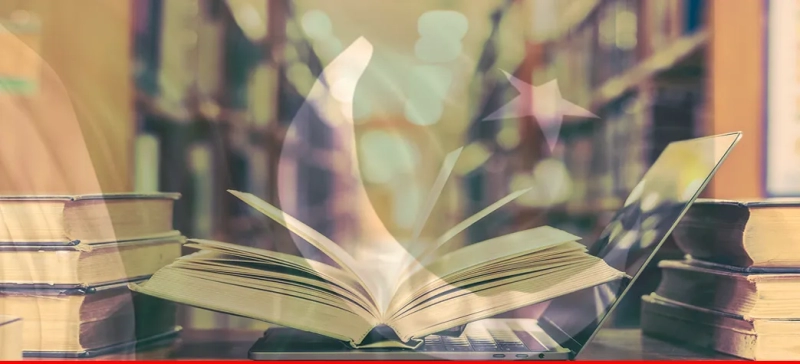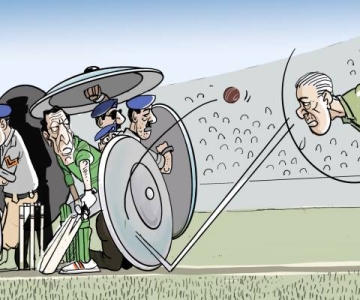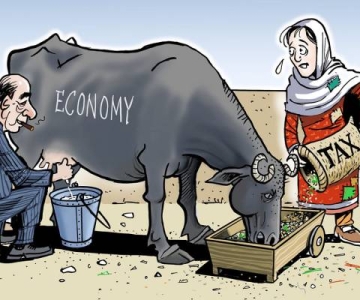In 2010, Pakistan’s Parliament devolved education as well as the powers to set school curricula to the provinces. Many of us heralded this change, as till then the curriculum had been the preserve of central governments that successively introduced a constructed ideology into what young minds were learning. Seven years later, it is disappointing that except for minor changes, no province has undertaken a serious effort to revise what is being taught in the schools.
There is an inordinate emphasis on the madrassas (religious seminaries) whenever we talk about radicalisation of Pakistani society. The madrassas cater to less than 5 percent of the total school going children. It is the public and private schools that shape young minds. A few years ago, I had the pleasure of working with a renowned academic, Dr A.H. Nayyar. Through his research, I came across this intriguing quote from a Pakistan Studies textbook:
“The Muslims of the subcontinent gained a separate state in order to practically implement the concept of the ultimate and definite supreme authority of … to practice a system, which is based on the principles laid down in Quran and the sayings of the Holy Prophet (pbuh). Islam is not the name of mere prayers and rituals. Rather, it is a complete code of life, which is fully capable of meeting all the demands of human life. It is able to fulfill all the demands of social behaviour, economics, morality and politics. Islamic system is fully aligned with the demands of modernity, and is completely practicable at all times.”
Prima facie, there is nothing wrong with such high-sounding idealism, and rather simplistic understanding of the religion and its application to everything in life. But the reality is that there is no consensus on what is ‘Islamic’, given how Muslims are divided into numerous sects and subsects; and their clerics don’t even pray together. The theological gatekeepers claim to know the best; and of late their use of violence and coercion is also well known. This is why Javed Ghamidi, a progressive scholar, had to leave the country. Another eminent scholar, Dr Shakeel Auj, who was dean of a school at Karachi University, was shot dead, and others who dare to challenge the orthodoxy face imminent threats.
Pakistan’s religio-nationalism started under Zulfikar Ali Bhutto (1972-77) and got a major impetus under General Zia-ul-Haq’s Islamisation drive through the 1980s. This drive was also located in nurturing public acceptance of jihad as state policy in Afghanistan and later in India. Sadly, we have indoctrinated at least one or two generations with the idea that Pakistan is only for Muslims. Since we imagine to have liberated ourselves from Hindus (non-Muslims), the implicit disdain for the non-Muslim starts at a very young age. Ideology of Pakistan, a post-partition invention, is now a truth in itself. Central to that is India, the enemy-nation, that must be feared, resented and when needed fought with, at all costs.
Under Gen Musharraf, efforts were made to reform the curricula and some positive developments did take place. For instance, discussion of ancient civilisations of our land, Indus Valley and Gandhara, returned to many schoolbooks. But the overall reframing of ideology did not take place.
In recent years, Sindh and Punjab provinces have made some minor improvements. Though, Punjab has also re-introduced ideological content to appease the conservative sections of society. Sadly, Khyber-Pakhtunkhwa has reversed some of the changes made during the rule of Awami National Party that had tried to reset the historical record and make the curricula a little less ideological.
After the ghastly attack on a Peshawar school in 2014, Pakistan formulated a National Action Plan (NAP) to counter terrorism and combat extremism. Once again, hope was rekindled that perhaps the state had smelt the coffee and was willing to take the bold strides towards moderating the way mindsets are shaped. Curricula changes in the NAP were clubbed with madrassa reforms, as a broader category. However, due to the resistance by religious-right and the avoidance of high cost by civilian governments, no tangible progress has been made. Even the talk of curricula reforms has by and large vanished from public debate. International donors such as the UK’s Dfid and others who have invested heavily into education also shy away from pressing this aspect of educational reform.
Curricula need revamping on an urgent basis. First, textbooks for General Science, Urdu and English, should only teach relevant content, and there is little need to insert ideological instruction into these subjects. Second, the content in history, social sciences, and Islamic studies need to be more inclusive teaching virtues of tolerance, and religious and cultural diversity within Pakistan and abroad. Such re-imagination requires rethinking the role of religion in the affairs of state. Third, teacher-training programmes to ensure that students are taught by individuals who can impart respect for religious minorities. Content against non-Muslims needs to be expunged. Fourth, inclusion of ideology of Pakistan in subjects such as Urdu, English, and Civics is irrelevant. That should be part of history curricula.
Fifth, non-Muslims should be exempted from compulsory teaching of Islamic studies. Sixth, glorification of war heroes is a practice everywhere but there needs to be a balance. Our future generations should learn to emulate Pakistanis who have contributed in the arts, science and technology& innovation. Seventh, the policy of employing private parties to write and publish textbooks needs to be bolstered and better regulated to get diverse set of writers contributing to the curricula. Lastly, the notoriously familiar factual and content errors ought to be cleaned up, especially with respect to distorted histories of our regions, people and their past.
The overemphasis on military and police action against ‘terrorism’ will not solve the endemic issue of extremism. Pakistan’s deradicalisation project must start in public schools and universities. We are already a few decades late in resetting our direction.
Published in Daily Times, April 8, 2017: Pakistan’s radicalisation problem begins at school



